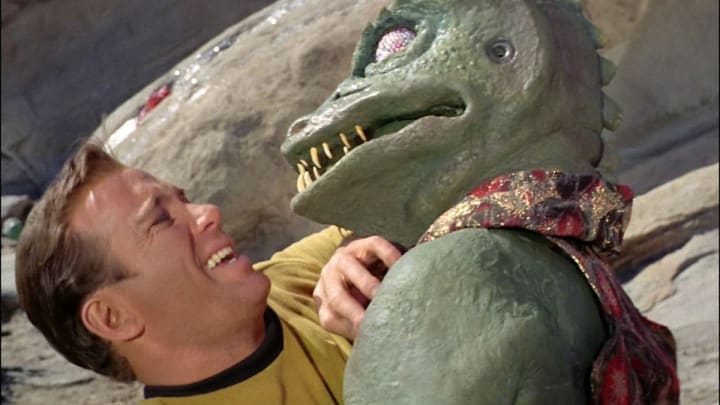2. “A Taste of Armageddon”
Something that I love about Star Trek is that it frequently told stories in the 1960s that remain prescient and relevant to this day. “A Taste of Armageddon” is an excellent example of this. As our lives are increasingly dominated by computers, I can’t help but think about this episode more and more.
With “A Taste of Armageddon,” Captain Kirk and the crew of the Enterprise must contend with a war fought between two planets in the Eminiar system. This war, between Eminiar VII and Vendikar, has been ongoing for 500 years, and has lasted that long because they do not use conventional weapons.
Instead, the two planets will simulate battles on computers and calculate casualties. People listed as casualties are then ordered to report to disintegration chambers, thereby preserving each planet’s infrastructure, at the “mere” cost of people’s lives. Kirk & Co. are obviously appalled by this setup, and Kirk ultimately destroys Eminiar VII’s simulation computer, to stop this process.
What makes this episode so good is that it, again, encapsulates one of the core ideas of Star Trek. It is even summed up in part of Kirk’s monologue at the end of the episode, where he says, “We can admit that we’re killers, but we’re not going to kill today. That’s all it takes.” Humans are not perfect, but we can choose to be better today and strive for self-improvement.
Additionally, “A Taste of Armageddon” shows how technology can numb a society to the adverse effects of war by abstracting them away. If war is just readouts from a computer console, what is the impetus to stop it? Do you even care about what the conflict is for anymore, or is the war just a thing you do, like checking emails?
These sorts of questions will likely matter more and more to the real world as technology like drones and AI systems take people off of the battlefield and redirect war to battles with and between machines. War is awful, but what do these technologies actually do to curtail it? (There is also something that could be said here about the Clone Wars in Star Wars, but that’s a different franchise.)
